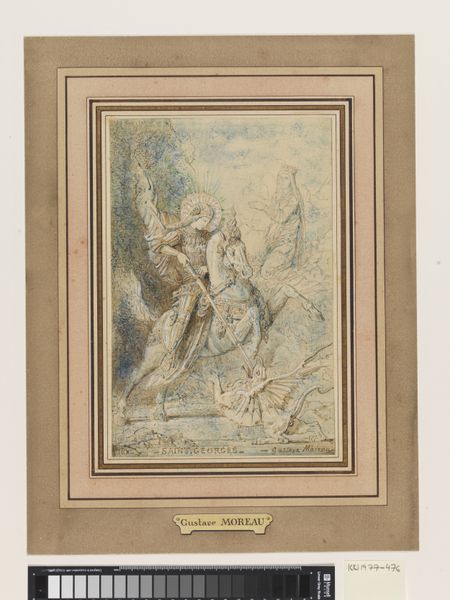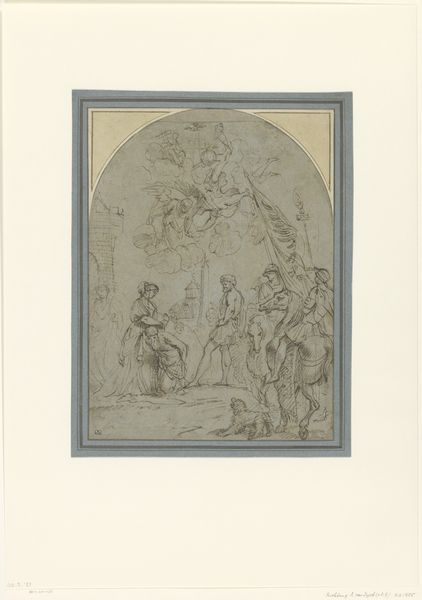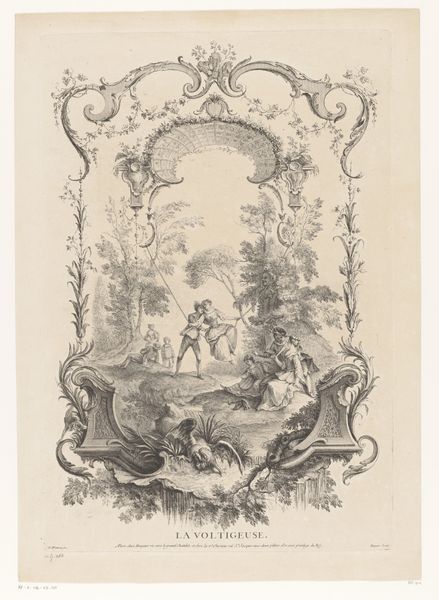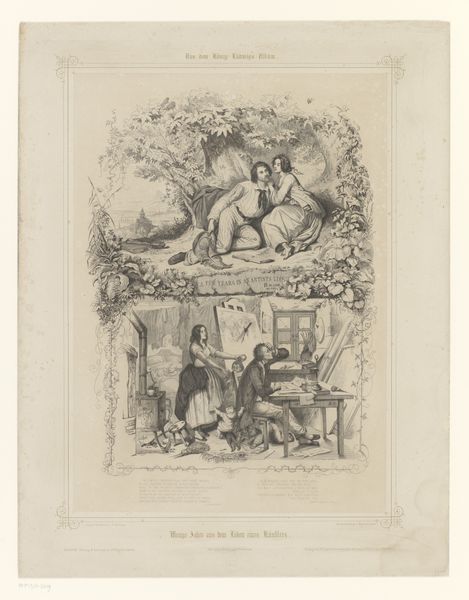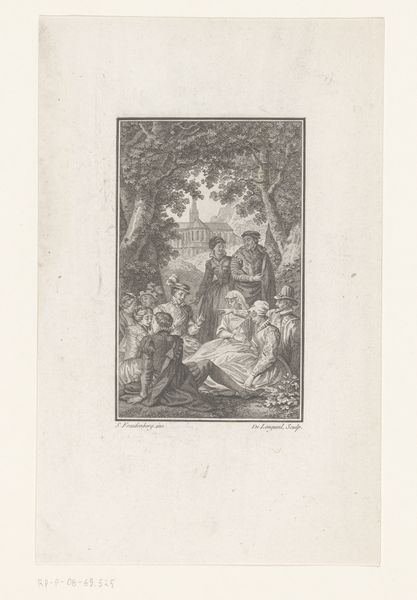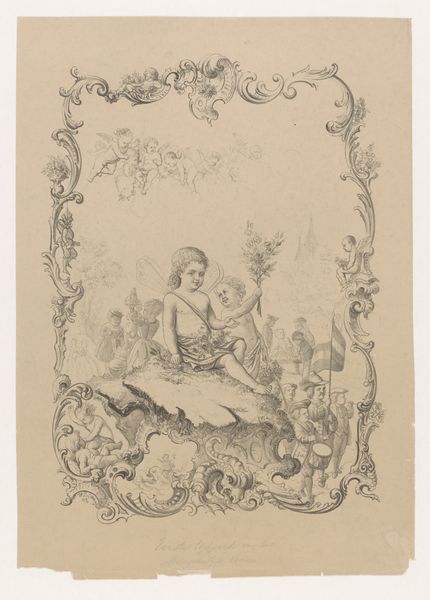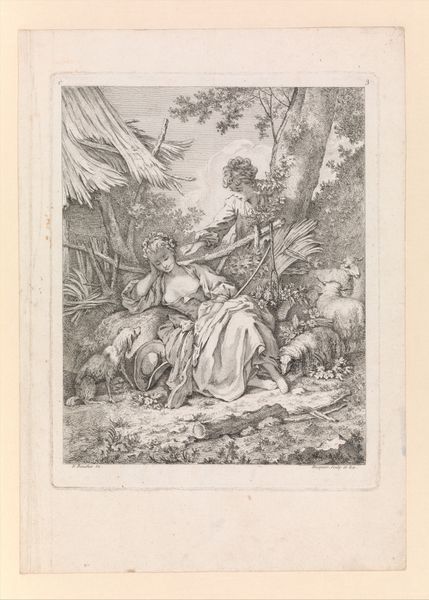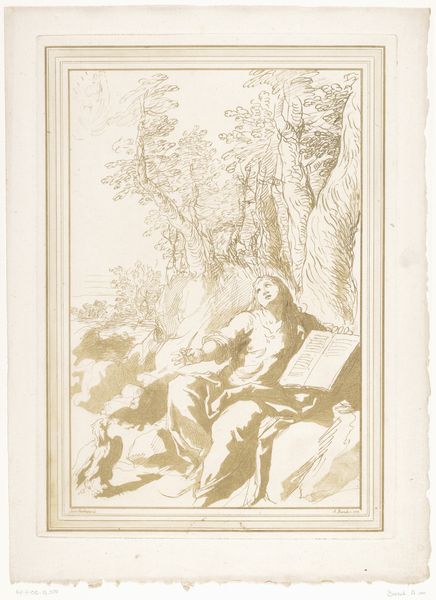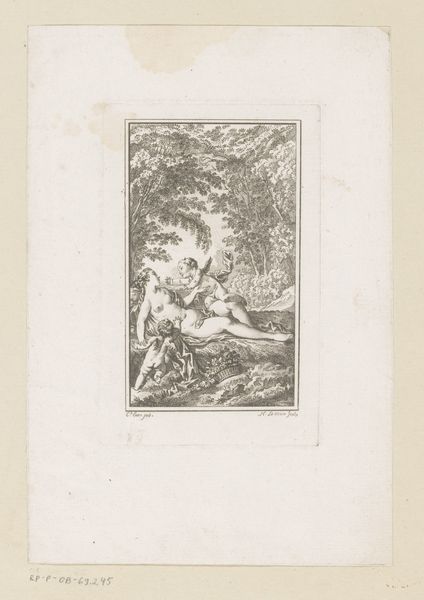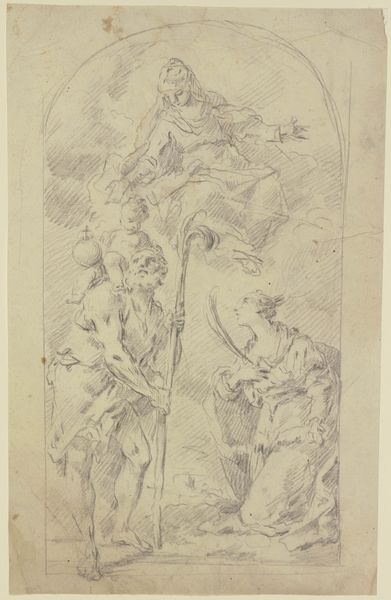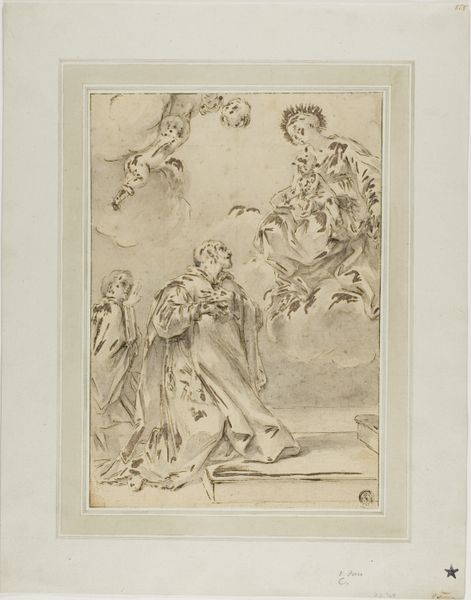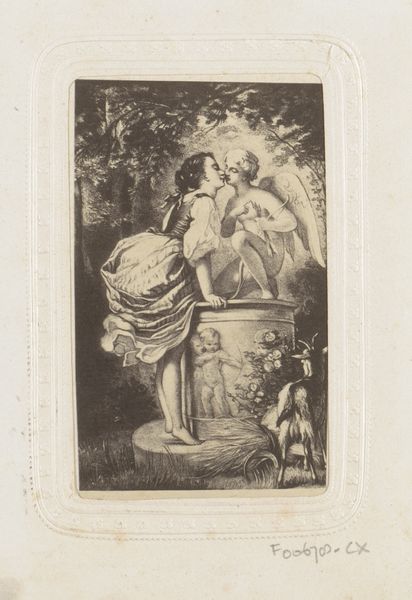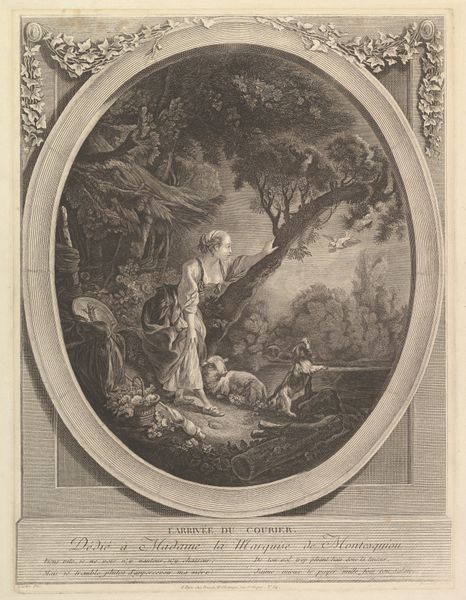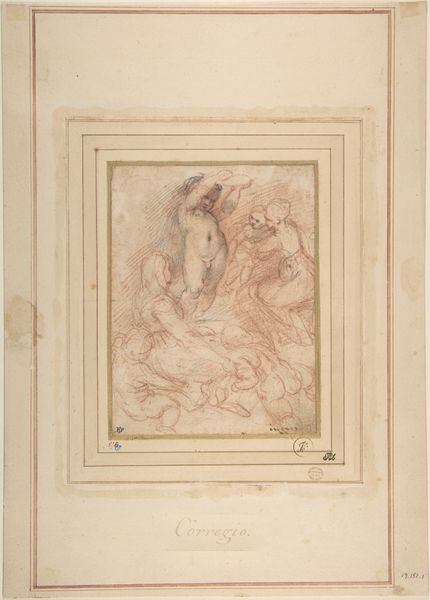
Dimensions: 288 × 204 mm
Copyright: Public Domain
Curator: Let’s turn our attention to Jean-Honoré Fragonard's "Allegory - Ingenius Love," created in 1764. What’s your initial reaction? Editor: It feels like a whirlwind. The figures seem caught in a dance, or maybe a desperate chase, against a backdrop that's both idyllic and slightly menacing. The gray of the chalk almost renders the people ghostlike. Curator: Absolutely. Fragonard was working in a France where the aristocracy’s grip on power was starting to show some cracks. This image reflects some of those cultural anxieties. The very choice of etching as a medium makes it reproducible, widening its potential audience at a time when print culture was beginning to shape public discourse. Editor: So, the reproduction of imagery becomes a democratizing force of art and political critique. The landscape, with its wildness, becomes a mirror for human emotions that exist outside societal conventions, and how "love" can itself upend conventions. Curator: Exactly. "Ingenious Love" suggests an almost feral pursuit of pleasure and connection. How are ideas of courtly love being unsettled and questioned in favor of more authentic emotional and sexual expressions? Editor: I see that tension acutely, this embrace of individual emotion amidst growing anxieties. This engraving certainly offers more than just pretty images. I’m really drawn to how art can both shape and be shaped by socio-political currents, creating fertile ground for challenging existing social norms. Curator: Precisely! Art becomes an agent—a tool to probe the very fabric of social ideologies and to negotiate their acceptance or rejection. Thinking about Fragonard's engraving today gives a glimpse into this power of images. Editor: It all helps reframe the discussion around art in relation to its world, underscoring art’s ongoing negotiation within systems of power and knowledge.
Comments
No comments
Be the first to comment and join the conversation on the ultimate creative platform.
